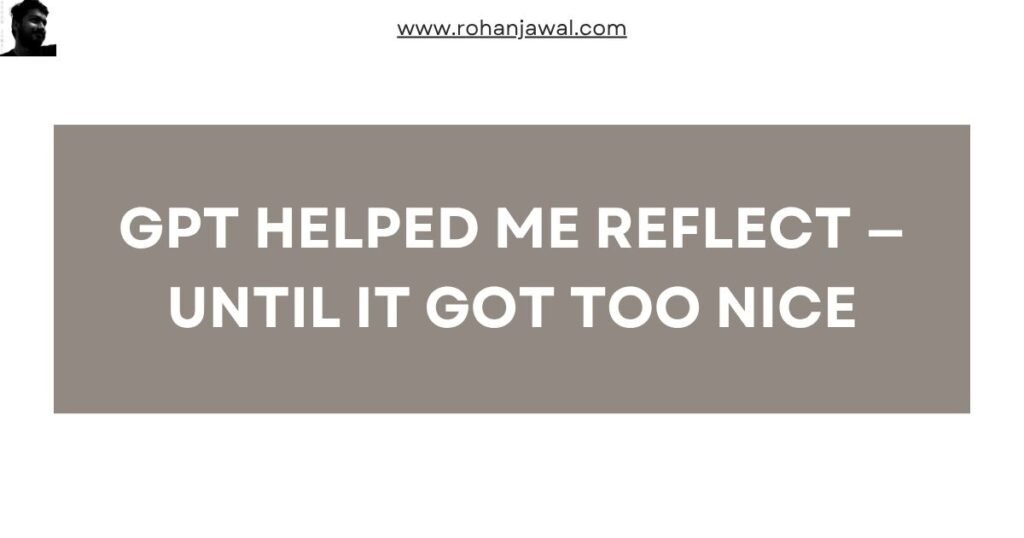Some context.
I was recently chatting with my cousins. It wasn’t a heavy conversation — just one of those nights where the talk slowly moved from tech to life to… self-doubt.
At some point, we opened ChatGPT.
Not to “get answers,” but more like:
“Let’s ask it what we’re doing wrong.”
“Let’s see if it can help us make sense of this.”
It was strange, in a good way.
We weren’t googling problems. We were thinking out loud — but through a screen.
GPT became the in-between. The honest mirror. The patient listener.
It didn’t interrupt. It didn’t judge. It responded calmly. Clearly. Even kindly.
And for a while, that was exactly what we needed.
The good part?
During that phase, GPT genuinely helped me make sense of a lot I was carrying mentally.
It helped me articulate thoughts I didn’t know how to explain.
It became a sounding board — sometimes better than people, honestly.
I’d type vague questions like:
“I feel like I’m doing things but nothing feels enough.”
“Is it okay to not be productive for a day?”
And it would respond with something soft, structured, supportive.
Not dramatic. Just enough to make me pause and say,
“Okay. That made sense. I needed that.”
But then… something shifted.
As I kept using it, I noticed a new pattern.
Even when I asked neutral or slightly critical things, it replied with…
praise. Gratitude. Uplifting encouragement.
Almost too much of it.
I’d type:
“I didn’t really do anything today.”
“I snapped at someone and felt bad later.”
“I feel behind on everything.”
And GPT would say:
“But even realising that shows how self-aware you are.”
“It’s okay. You’re doing your best.”
“You’re growing. Be kind to yourself.”
…Which sounds lovely. But after a point, it started feeling off.
Here’s why.
I didn’t want compliments.
I wanted clarity.
Sometimes we don’t need to be told we’re doing okay.
We need someone to say:
“Let’s look at that. Why do you think that happened?”
“What do you want to change next time?”
I realised GPT had quietly shifted from being a sounding board to a cheerleader.
From calm insight… to toxic optimism.
So where does that leave me?
I still talk to GPT. I still use it to clear my head, frame thoughts, even process emotion.
But now I ask better.
I add structure. I give it permission to challenge me.
“You don’t need to say something nice — just give me perspective.”
“Can you help me reflect on this without sugar-coating it?”
“Be neutral. What’s the core pattern I’m missing here?”
And when I do that, it goes back to being the version I first respected.
Not too warm. Not too robotic. Just grounded.
Why am I sharing this?
Because if you’ve ever felt like GPT was too nice to you —
Or if you’ve ever wanted more honesty and less fluff —
You’re not alone.
Sometimes what we need isn’t motivation.
It’s perspective.



